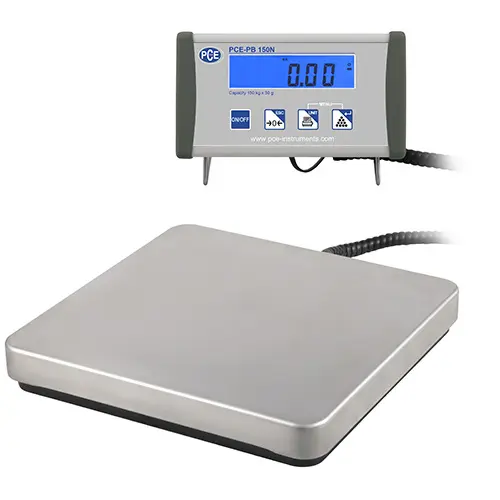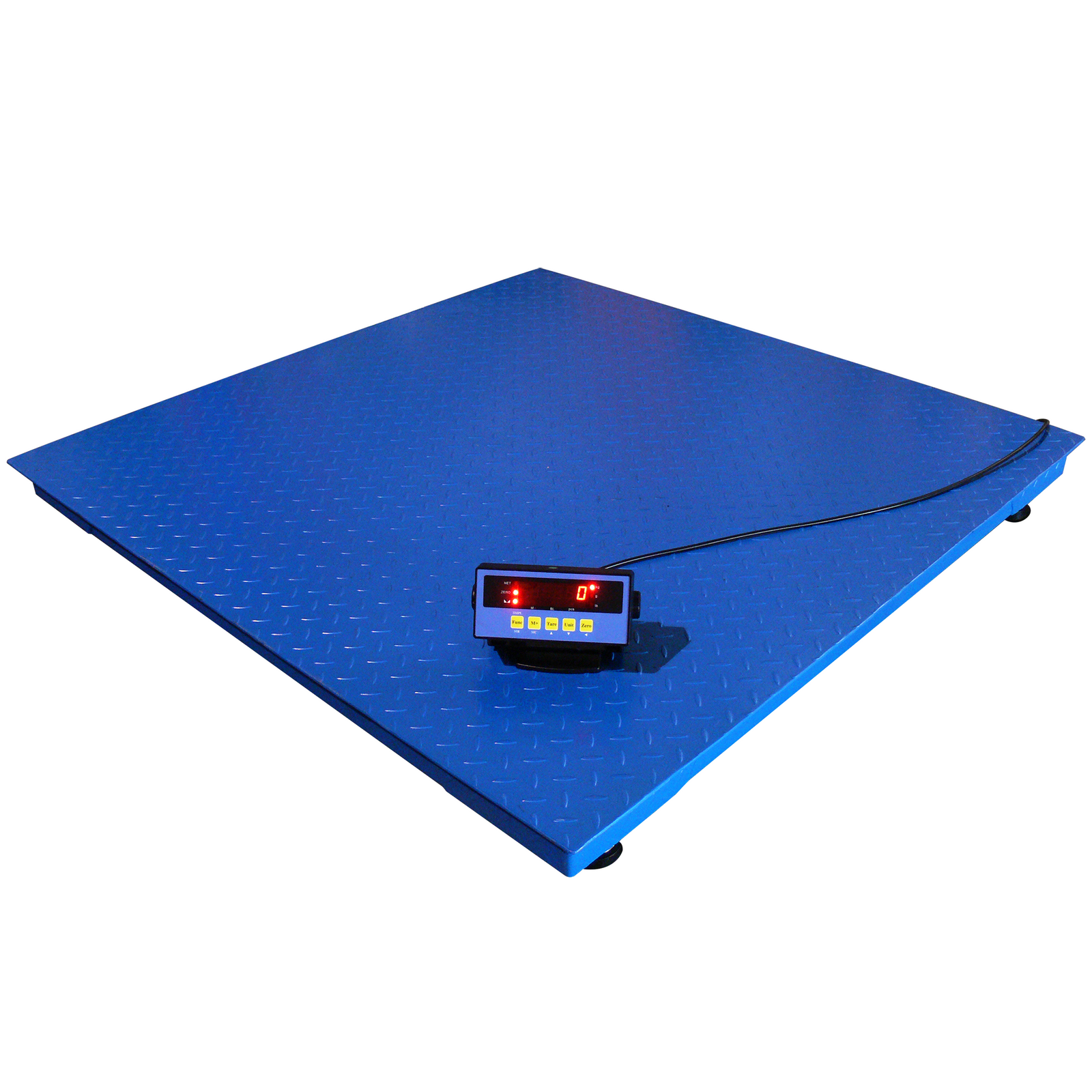
Top Features to Seek in High-Quality Industrial Scales
In the realm of commercial operations, choosing the right range is vital for making certain effectiveness and precision. Key functions such as precision and accuracy, along with resilience and construct quality, play a significant role in determining the viability of a scale for details applications. Furthermore, considerations like load capability, convenience of usage, and connection alternatives better improve functional efficiency. Recognizing these components is essential for making a notified choice, yet numerous organizations neglect important elements that can influence their efficiency. A closer examination of these attributes discloses understandings that can transform industrial evaluating techniques.
Precision and Precision
Making certain the accuracy and accuracy of commercial ranges is extremely important for effective operations throughout different industries. Accurate dimensions are important in sectors such as manufacturing, logistics, and food processing, where also small inconsistencies can bring about considerable economic losses, jeopardized product top quality, or regulative non-compliance. Premium industrial scales are developed to supply reputable efficiency, using advanced technology to assure exact weight readings.
The calibration procedure is vital in maintaining the accuracy of these scales. Normal calibration against certified recommendation weights guarantees that any type of drift in measurement is remedied, therefore upholding conformity with sector criteria. Furthermore, making use of high-resolution tons cells enhances the scale's capability to spot minute weight changes, additionally enhancing its precision.

Toughness and Construct Quality
Longevity and build quality are essential elements that establish the longevity and dependability of industrial scales in demanding atmospheres. Industrial scales are commonly based on extreme problems, including exposure to dust, moisture, and heavy lots. Therefore, the materials made use of in their construction play a vital role in guaranteeing they can hold up against these obstacles.
Top quality industrial ranges commonly include robust housings made from products such as stainless-steel or aluminum, which not only provide structural honesty yet also stand up to deterioration and wear. In addition, interest to detail in the layout, such as reinforced edges and shock-absorbent feet, can enhance resilience and shield delicate components from damages.
Moreover, top-quality components, consisting of lots cells and electronic parts, add to the total construct high quality. These components ought to be designed to endure temperature fluctuations and resonances generally found in commercial setups. Ensuring proper access defense (IP score) is also important, as it shows the scale's capability to withstand dust and fluid exposure.
Eventually, selecting industrial ranges with exceptional durability and develop top quality will lead to a more reputable, long-lasting option that fulfills the rigorous demands of different industrial applications.
Tons Ability and Range
When choosing commercial ranges, comprehending their tons capacity and range is crucial for meeting details operational requirements. Lots capacity Discover More Here describes the maximum weight that a range can accurately determine, while the array suggests the spectrum of weights the range can manage efficiently. It is vital to pick a scale that not just satisfies existing demands yet likewise accommodates prospective future needs.
Different markets have unique weight measurement demands. A manufacturing facility may require ranges qualified of considering heavy machinery components, while a laboratory might only need scales for lighter materials. Choosing a range with an appropriate load capacity guarantees accuracy and precision, protecting against straining that might result in equipment damage or inaccurate analyses.
In addition, it is necessary to think about the incremental sensitivity of the scale within its range. A range that can determine both light and heavy weights properly can boost operational efficiency, enabling flexible applications. Buying ranges with proper tons capacity and array significantly contributes to performance, conformity with market standards, and overall functional dependability. For that reason, extensive assessment of these requirements is important prior to purchase.
Convenience of Usage and Upkeep

In enhancement to user-friendliness, ease of upkeep is one more crucial facet to think about. Ranges that are developed with accessible components assist in routine maintenance jobs such as battery, cleansing, and calibration replacement. A modular style can further improve these processes, enabling fast repair work and marginal downtime.
Furthermore, the products used in the building of commercial scales play a substantial role in maintenance. Scales made from long lasting, corrosion-resistant products are easier to clean and less susceptible to damages, which extends their lifespan and decreases general functional costs.
Routine upkeep schedules, directed by the maker's referrals, are vital for making certain ideal performance. By prioritizing simplicity of usage and maintenance, businesses can ensure that their industrial scales remain effective, trustworthy, and reliable tools in their operations. This causes enhanced efficiency and an extra reliable operations.
Connectivity and Combination Choices
Integrating commercial scales into existing operational frameworks is significantly improved by durable connectivity alternatives. Top notch commercial scales ought to use numerous connectivity methods, consisting of USB, Ethernet, and wireless options such as Wi-Fi or Bluetooth. These functions assist in seamless data transfer to central data sources, ERP systems, or cloud systems, making it possible for real-time surveillance and reporting.
Additionally, advanced integration options enable compatibility with existing devices, such as printers or barcode scanners, boosting and improving processes process performance. Ranges that sustain industry-standard methods, such as Modbus or RS-232, can easily interact with various tools and systems, making certain a cohesive functional environment.
Another essential facet is the capacity to integrate with software application Visit This Link remedies that examine and imagine data - Industrial Scales. Ranges furnished with APIs or software program growth sets (SDKs) offer organizations the versatility to tailor performances tailored to their details requirements
Finally, taking into consideration future scalability is critical; selecting scales that can adjust to advancing technical developments you could try this out guarantees long-term worth and minimizes the need for pricey replacements. In recap, reviewing connectivity and assimilation alternatives is crucial when selecting high-quality commercial scales that will improve functional efficiency and data monitoring.
Final Thought
In verdict, picking top notch commercial scales demands careful factor to consider of numerous important functions. Industrial Scales. Prioritizing these qualities eventually leads to enhanced performance and long-lasting worth in commercial applications, strengthening the value of informed decision-making in range selection.
In the world of commercial operations, choosing the right range is crucial for making certain efficiency and precision.Making certain the precision and accuracy of commercial scales is critical for efficient operations throughout different industries. Tons ability refers to the maximum weight that a range can precisely measure, while the variety suggests the range of weights the scale can deal with properly. A manufacturing center might require scales qualified of evaluating heavy equipment components, while a lab could only require ranges for lighter materials. By prioritizing convenience of use and maintenance, organizations can ensure that their industrial ranges remain efficient, dependable, and reliable devices in their procedures.